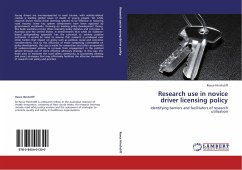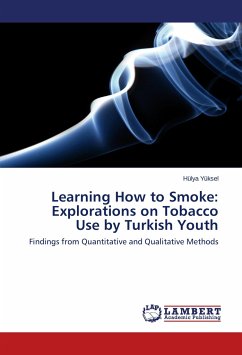
Research use in novice driver licensing policy
Identifying barriers and facilitators of research utilisation
Versandkostenfrei!
Versandfertig in 6-10 Tagen
52,99 €
inkl. MwSt.

PAYBACK Punkte
26 °P sammeln!
Young drivers are overrepresented in road trauma, with vehicle-related crashes a leading global cause of death of young people. Yet while research shows novice driver licensing systems to be effective in reducing road trauma, some key system components have been opposed by governments worldwide. Drawing on existing policy development theory, this book examines novice driver licensing policy debates and processes in Australia and the United States. It demonstrates that while an evidence-based policymaking approach has the potential to achieve positive outcomes, it would be naive to assume that ...
Young drivers are overrepresented in road trauma, with vehicle-related crashes a leading global cause of death of young people. Yet while research shows novice driver licensing systems to be effective in reducing road trauma, some key system components have been opposed by governments worldwide. Drawing on existing policy development theory, this book examines novice driver licensing policy debates and processes in Australia and the United States. It demonstrates that while an evidence-based policymaking approach has the potential to achieve positive outcomes, it would be naive to assume that research is privileged over other factors that impact on policy such as political, social and economic considerations. Due to the influence of these competing rationalities on policy development, the case is made for researchers and other proponents of evidence-based policies to increase their engagement in the political sphere through use of more effective advocacy strategy. In this way, the book aims to motivate the road safety community to proactively develop and enact strategies that may effectively facilitate the effective translation of research into policy and practice.












